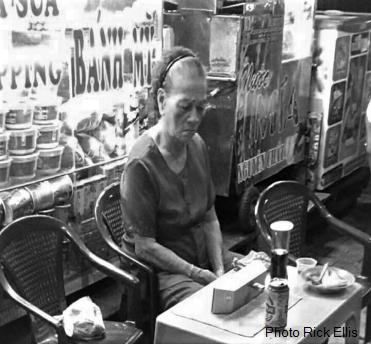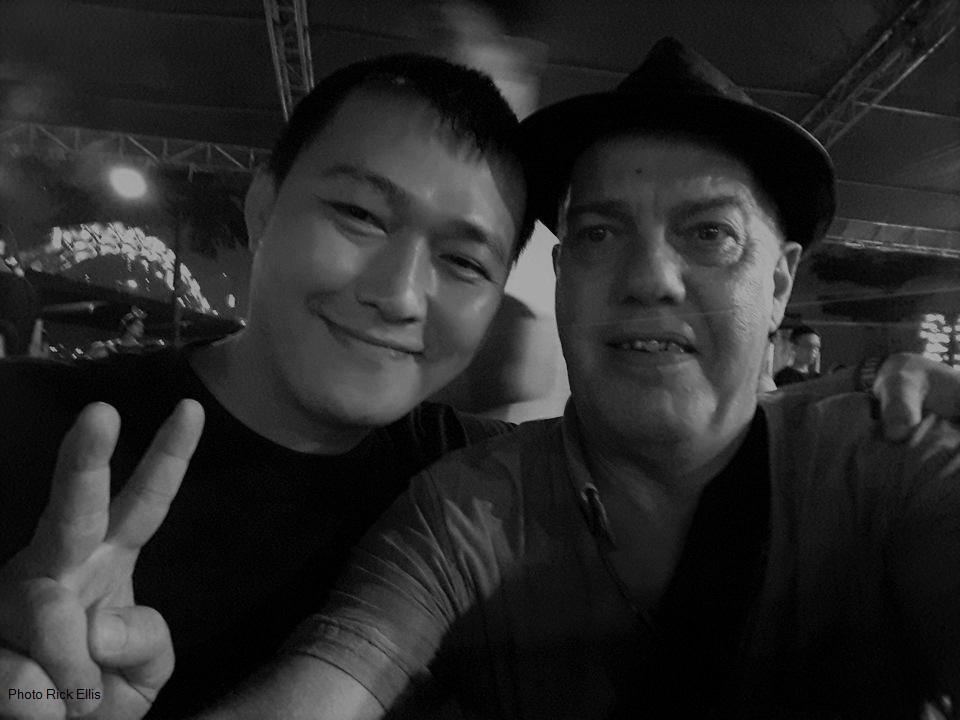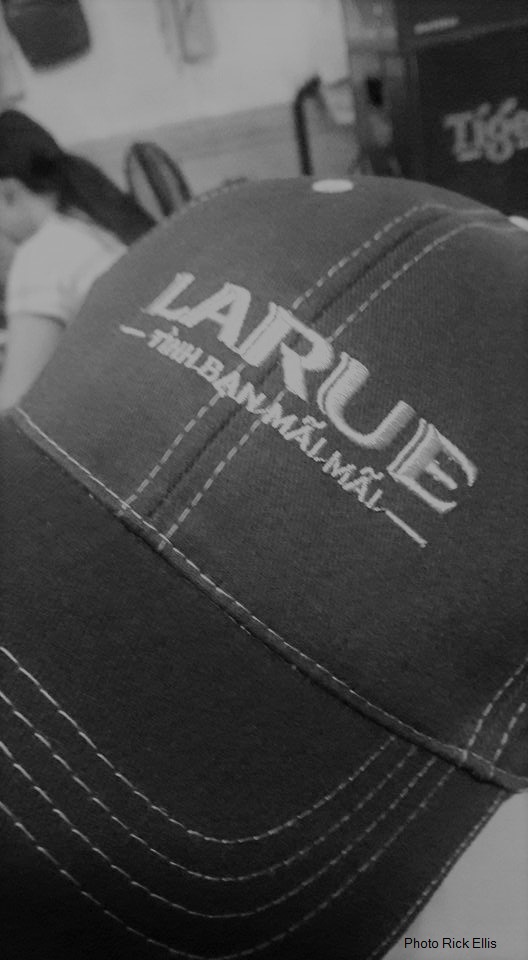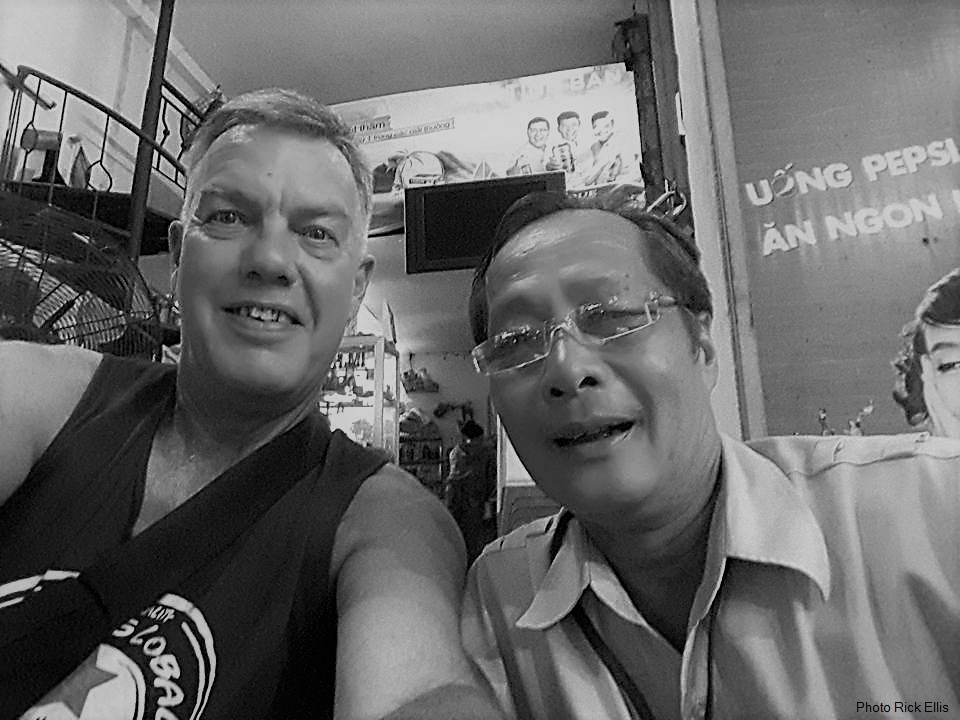One of my habitual haunts in Da Nang is a humble little café along the Han River that serves “nước mía” (sugarcane juice, so lovely in hot weather), “bánh mì” sandwiches (always in fashion, day or night, summer or winter), and “bia lạnh” (cold beer, lovely in any weather).
The owner (I call her and every other middle-aged and elderly woman in Vietnam “Madame”) is a charming and personable woman, with a motherly knack for pampering her customers. She must know that I can’t catch most of what she’s saying, but that doesn’t stop her, she chatters away a mile a minute. Then she thinks if she speaks more slowly and deliberately I’ll understand more, but sadly that’s not the case.
Her mother usually sits in pole position directly in front of the café with a miniature boom box playing old “broken heart” country songs. I don’t understand the words but I know exactly what the songs are about: lost loved ones or people forced to abandon family and friends to seek work in the big city, it’s always the same sad story.
I’ve sat there and watched many times, Mother knows every word of every song, hits the right tone every time, almost in a trance. The only time she snaps out of it is when the boom box malfunctions, at which time she barks out grumpily to whomever nearby to fix the box. Trance is broken as if she was startled out of a beautiful dream and she’s eager to get back to it.
You can tell she’s been missing someone and bygone days for a very long time, I shudder to think how long she’s been alone with those memories.
 |
| Mother and her boom box |
It occurs to me for the first time that there is a large population of elderly women without men in their lives, probably widowed.
Many countries have attempted to take over Vietnam during the last half-century or so, during which time Mother was young and newly married or barely still single and Madame was still a faraway twinkle in her eye.
First came the original Indochina War with the French toward the end of the colonial era during the 1940s and 50s, partly in parallel with the Japanese who occupied Vietnam during WWII, then the Americans right after until the mid-1970s, and finally the Chinese tried to invade Vietnam several times for over 10 years ending in the early 1990s.
It was one conflict after another for half a century, with all intruders ultimately rejected and sent home, but millions of lives were lost to Vietnam – mostly men.
It’s ironic that this story is set on the banks of the Han River, precisely the spot where the French landed and stormed the city in 1858, but were rebuffed, only to return later and rename it Tourane, only to be defeated one final time, which marked the end of the colonial era in Vietnam.
It’s equally odd that the first U.S. landing during the Second Indochina War (known to Westerners as the Vietnam War and to Vietnamese as the American War) was at Da Nang in March 1965.
And so there sits Mother today with all her memories, right in the midst of it all.
What happened to these ladies’ husbands and what do they think of all those countries who intruded? If anybody has a solid case to dislike foreigners, especially Westerners, it’s the Vietnamese, right?
As a lifelong expatriate, traveller, and journalist, I’m constantly asked by foreigners abroad about the reception I get from the locals in Vietnam. Do Vietnamese people harbour any negative feelings toward us? Is it OK to visit Vietnam?
I love to answer those questions and I’m well-placed to do so because I have roamed Southeast Asia for many years, so it’s easy to compare one country with another.
For me, a sociable Westerner in a provincial city, spending time in Da Nang is akin to being a rock star. People go out of their way to make contact even though their English skills are limited and my Vietnamese is borderline hopeless. I move in several little circles of locals, most of whom speak little English, some a lot, and some none at all.
 |
| With buddy Hoang under Cầu Rồng (Dragon Bridge) in Da Nang |
I’m pampered and coddled, constantly watched over so that if anyone thinks I’m in need of something, the appropriate instructions are given to whoever is responsible. It’s nothing to do with money, for sure much more of the other customers’ cash hits the table than mine.
Westerners are perceived as the purveyors of all things great and new, hence the warm welcome. The English language, computer games, movies, televisions, air-conditioning, slick cellphones, cars and motorbikes – they all come from us, so while there is occasional trepidation the prevailing feeling is an enthusiastic welcome, or friendly tolerance and curiosity at the very least.
That sentiment has its limits, at least for some. As in every land, some prefer their own people’s company to that of foreigners. Not everyone has an international flare or the patience to deal with strange languages and customs. No harm, no foul.
The fact is the Vietnamese are far too energetic and ambitious to waste time looking in the rear-view mirror. The country is experiencing rapid growth with international tourist arrivals last year up 25 percent, shooting for a 30 percent increase this year, and foreign entities are queuing up to invest. Things are booming in all sectors in most regions of the country.
That success has many foundations including natural beauty, climate, stunning sights, culture, and food, but a critical factor is understanding foreigners, what we want and why, and how to interact with us. Although English isn’t as widely spoken here as in some destinations in Southeast Asia, the Vietnamese definitely “get it” when it comes to foreigners.
I never have to ask for something twice, wait while a service person struggles to count change, or return food that is not properly prepared. Occasional patience is needed because some locals we deal with in the touristy areas are rural migrants, not groomed on the skills necessary to interact with foreigners.
Resentment surfaces often toward the Chinese, the most recent aggressor, who continues to increase presence the East Vietnam Sea. I hear grumblings when the locals are confronted by boisterous and overbearing gaggles of Chinese tourists, but they tough it out and earn valuable tourist dollars.
If “the war” is mentioned, most Vietnamese will think it refers to the attempts at invasion authored by the Chinese from early 1979 until the 90s.
For me every day is a pleasure, a simple walk down the street includes various chummy encounters unrelated to which businesses I give my patronage, everyone’s friendly. I roll with the locals, eat what they eat, eat in the grubbiest restaurants, drink in their low-class beer joints, and love every minute.
At least half the time I’m offered something when I go out, for no particular reason, that’s the way to welcome me. When I need to be alone with my thoughts, I have to seek out an establishment that I don’t know, otherwise I’ll be invited to a table to share food and drink and talk. The warmth of the people never ceases to amaze me.
That warmth comes from a couple of decades of peace together with some good old-fashioned team spirit and patriotism, with an ever-brighter vision of the future. People in Vietnam are generally pleased with progress, and feel more prosperity on the horizon.
Therefore, to most Vietnamese, we foreigners, our gadgets, innovations, technology, and international languages play a role in ongoing progress, not the evils that transpired decades ago.
Almost nobody in Vietnam cares about those times any more.
 |
| “Tình bạn mãi mãi”…. |
.…means “Friends forever.” I hope so.






















































